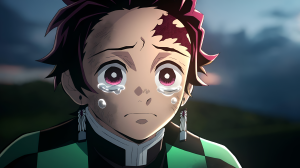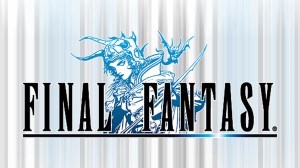Before there was a global phenomenon, there was simply Hajime Isayama. The budding artist had little more than a story in mind back in 2006 when he thought up Attack on Titan. Now, more than ten years later, the creator’s work has become an internationally acclaimed one that audiences have fallen for. Attack on Titan‘s visceral gore and unflinching insight into its characters have left millions of fans stunned, and but the story is one that’s been a long time coming.
Videos by ComicBook.com
With more than a decade behind it, Attack on Titan‘s creation is a complex one that fans should surely appreciate. After all, without Isayama’s trials and errors, fans may have never been introduced to Eren Yeager and his Survey Corps companions.
Here at ComicBook.com, we’re digging through the history of Attack on Titan to shine a light on the franchises’s growing stories.

Pre-Publication
Back in 2006, Attack on Titan was birthed under the creative control of Isayama. The gritty story began as a 65-page one-shot that he pitched to Weekly Shonen Jump. However, Shueisha rejected the story and recommended Isayama alter his art style. The creator refused and approached Kodansha’s Weekly Shonen Magazine with Attack on Titan, and the publisher okayed it for serialization.
Before the manga reached publication, Isayama worked to soothe all the story’s kinks and plot twists out. The creator was inspired to make the world’s walls thanks to his own isolated upbringing in a rural town, and his inspiration for the Titans came after he ran into a drunk patron at a cafe.

Manga & Light Novels
Attack on Titan began publication in September 2009 thanks to Kodansha. The publisher collected Isayama’s works into the first Attack on Titan volume in March 2010, and more than 60 million volumes have been sold since. The main story is still on-going with its publications, and a slew of spin-off stories have also been released. Attack on Titan: Junior High began in May 2012 and 2013 ushered in Attack on Titan: Before the Fall. Other spin-offs like Spoof on Titan and Attack on Titan: Lost Girls reached shelves in 2013 and 2015 respectively.
As for the franchises’s light novels, a handful have been released over the years. In 2011, the original Attack on Titan: Before the Fall story was released. Harsh Mistress of the City made its debut in 2014 before Lost Girls was published in 2014.

Anime
Of course, Attack on Titan began its bid for global domination in April 2013 when its anime was released. Wit Studio produced the fluid series under director Tetsuro Araki. The anime aired on MBS in Japan while sites like Funimation and Crunchyroll simulcasted the series abroad. Thanks to the show’s overwhelming popularity, Wit Studio was in such a great demand for animators that one of the company’s designers even took to Twitter asking for animator applications. And, by the show’s end, Attack on Titan became such a hit that theaters screened its finale in Japan.
In 2014, Attack on Titan collected its first season and adapted them into two animated films. The first installment debuted to fanfare before the second premiered in 2015. It was at the debut of part one that fans learned Wit Studio was already working on a second season of Attack on Titan.
Originally, the new season was slated to debut in 2016. However, Wit Studio elected to push the premiere back in order for Isayama to produce more manga content. Late last year, Kodansha confirmed Attack on Titans second season would have its long-awaited debut in April 2017.

Live-Action Adaptations

In 2011, anime fans were stunned to learn that Warner Bros. Japan was developing a live-action adaptation of Attack on Titan. The project’s original director left after a year on-board citing creative differences, and writer Yasuke Watanabe worked on the film’s script with Isayama. The first live-action film made its debut in August 2015 before the second hit theaters in September 2015. Fans flocked to see the spectacle, but audiences were left disappointed by the films. The project earned lackluster reviews from both fans and critics. So, when reports broke that Warner Bros. was looking to adapt the anime for a Hollywood franchise, long-time fans were understandably wary.
By the end of 2017, Attack on Titan will have also entered the world of stage plays. Live Impact announced it was working on a massive, 150-cast member production of the thrilling story.








